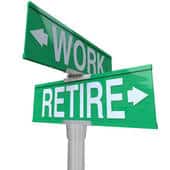 Common sense suggests that older workers can be the most knowledgeable and most experienced. As they retire, most of us would expect to see slight, temporary decreases in productivity until the loss of experience can be replaced …right? One study published earlier this summer came to a startling and disturbing conclusion. After looking at all 50 states, the states who aged faster saw a massive macroeconomic impact following baby boomer retirement. Not only did productivity decrease, but overall business development and economic growth significantly lessened for a sustained period of time, regardless of the population’s ability to replace the retiree with a new employee.
Greg Ip, chief economic columnist at the Wall Street Journal, attributes this to the fact that retiring employees are only the most capable, but they also tend to increase the productivity and value of younger employees. Quite simply, these workforce veterans bring vital skills to the table that no degree or technology can afford the new generation of employees. Ip’s solution? We must do more to keep senior employees involved pre- and post-retirement, or suffer the consequences.
Common sense suggests that older workers can be the most knowledgeable and most experienced. As they retire, most of us would expect to see slight, temporary decreases in productivity until the loss of experience can be replaced …right? One study published earlier this summer came to a startling and disturbing conclusion. After looking at all 50 states, the states who aged faster saw a massive macroeconomic impact following baby boomer retirement. Not only did productivity decrease, but overall business development and economic growth significantly lessened for a sustained period of time, regardless of the population’s ability to replace the retiree with a new employee.
Greg Ip, chief economic columnist at the Wall Street Journal, attributes this to the fact that retiring employees are only the most capable, but they also tend to increase the productivity and value of younger employees. Quite simply, these workforce veterans bring vital skills to the table that no degree or technology can afford the new generation of employees. Ip’s solution? We must do more to keep senior employees involved pre- and post-retirement, or suffer the consequences.What a Medicaid Planning Attorney Does for Nashville Seniors and Families
Key Takeaways: A Medicaid planning attorney helps families qualify for Medicaid while protecting assets and avoiding costly mistakes. Medicaid rules in Tennessee are complex, highly specific, and easy to misunderstand without professional guidance. Long-term...
